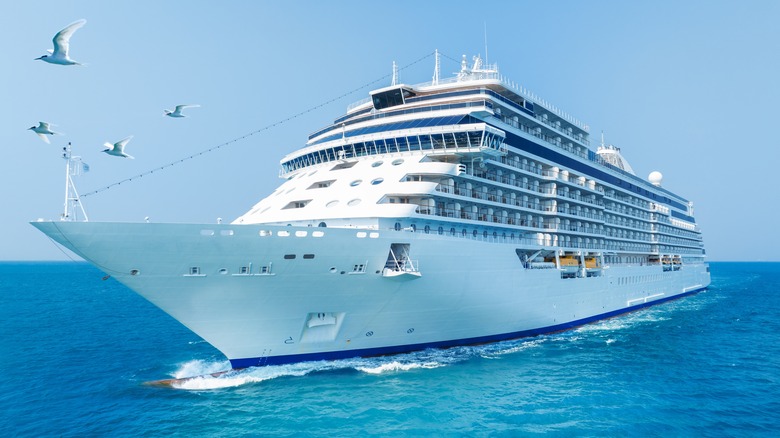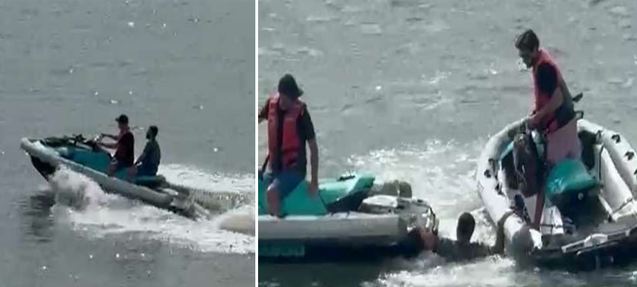On September 7, 2025, Jey González Díaz allegedly jumped off Royal Caribbean’s Rhapsody of the Seas near the Port of San Juan, Puerto Rico, to evade a $16,710 gambling debt. The ship had departed from the Port of San Juan on August 31 and traveled to Barbados before returning on September 7. During disembarkation around 9 a.m., González Díaz reportedly leaped into the water.
Dramatic Rescue and Arrest
Authorities responded promptly, rescuing González Díaz from the water using jet skis. He was then arrested by Customs and Border Protection officers near Puerto Rico’s Capitol Building. Upon his arrest, González Díaz was found in possession of $14,600 in cash, five different IDs, and two phones. Among the IDs was one for “Jeremy Omar González Díaz,” a man currently in federal prison for drug trafficking and weapons possession. González Díaz claimed that Jeremy Omar González Díaz is his brother.

Alleged Motive for the Jump
González Díaz confessed to jumping off the ship to avoid declaring the cash he was carrying, fearing customs duties. He has been charged with a federal offense related to avoiding currency reporting requirements and was released on bail. If convicted, he faces up to five years in prison or a $250,000 fine.
Royal Caribbean’s Response
Royal Caribbean Cruise Lines reported that González Díaz owed them $16,710.24, almost entirely from casino and gaming expenses. The cruise line has not commented on whether he was banned from future sailings.
Broader Implications
This incident highlights the serious consequences of attempting to evade financial obligations. It also underscores the importance of adhering to legal requirements when traveling internationally. Authorities are continuing their investigation into the matter.
The Dangers of Impulsive Decisions
Jumping from a cruise ship is extremely risky and can have severe consequences. Even experienced swimmers face challenges such as strong currents, cold water temperatures, and the possibility of injury from the ship itself or its surrounding structures. In this case, González Díaz’s decision to leap into the water put his life at risk, highlighting how impulsive actions can escalate a financial problem into a life-threatening situation. Emergency responders risk their own safety when performing high-stakes rescues, making such stunts dangerous not only for the individual but also for those trying to help.
Gambling and Financial Strain
Gambling debts are a common source of stress and poor decision-making. In González Díaz’s case, the $16,710 owed to the cruise line created pressure that led to extreme measures. Experts warn that gambling-related financial stress can lead to impulsive behaviors, legal issues, and mental health challenges. Seeking support from financial advisors, gambling counselors, or family members is a safer approach than attempting to escape responsibility.
Legal Consequences
Federal authorities treat attempts to evade reporting requirements very seriously. Possessing large sums of cash without declaring it, especially when traveling internationally, can lead to fines, imprisonment, and long-term legal repercussions. In González Díaz’s case, the combination of jumping from a vessel and carrying multiple IDs and phones complicates his legal situation. Courts often view such attempts to avoid obligations as deliberate actions, which can increase the severity of penalties.

Lessons for Travelers
This incident serves as a cautionary tale for travelers worldwide. Always adhere to financial obligations, follow legal protocols, and avoid impulsive actions. Planning ahead, seeking help when in debt, and understanding local laws are essential to avoiding dangerous and potentially life-altering situations.

















